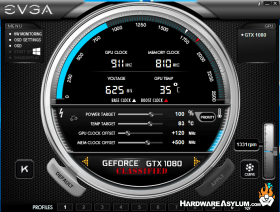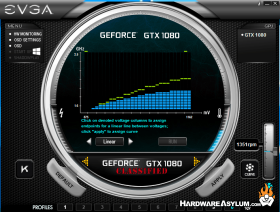EVGA GTX 1080 Classified Video Card Review
Author: Dennis GarciaOverclocking the GTX 1080 Classified
Overclocking the Pascal GPU can be a frustrating process with some very surprising results. On the surface the GPU looks to accept additional clocks extremely well until you realize that your manual baseclock might be well within the Boost 3.0 range. Ideally the card should run at that frequency until you realize that the Boost clock has also scaled and may be outside of the operating range and be rather unpredictable.
When I say “operating range” I mean the allowable frequency. You see, Pascal has a "hard lock" inside the chip and if you have a good one you might run around 2100Mhz and a bad one may top out at 1900Mhz.
During my overclocking adventure I was able to get the EVGA GTX 1080 Classified to run stable at a solid 1831Mhz Core and 5500Mhz memory. This is a 110Mhz gain on the core and 500Mhz more on the memory. Of course the best part is when Boost 3.0 kicks in where I noticed a Boost Clock of 2100Mhz!!
To attain this overclock I needed to do a minor voltage tweak using the voltage controls in EVGA PrecisionX which only added 0.03v to the core voltage under load. Any more or less voltage and the card would crash at this speed.
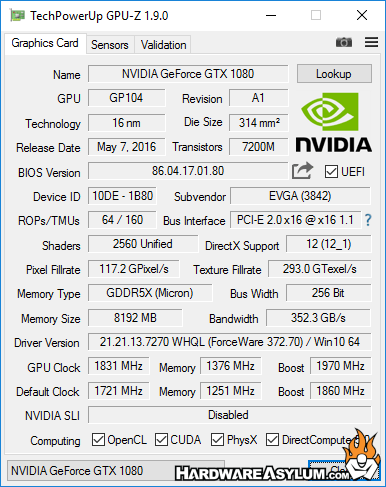
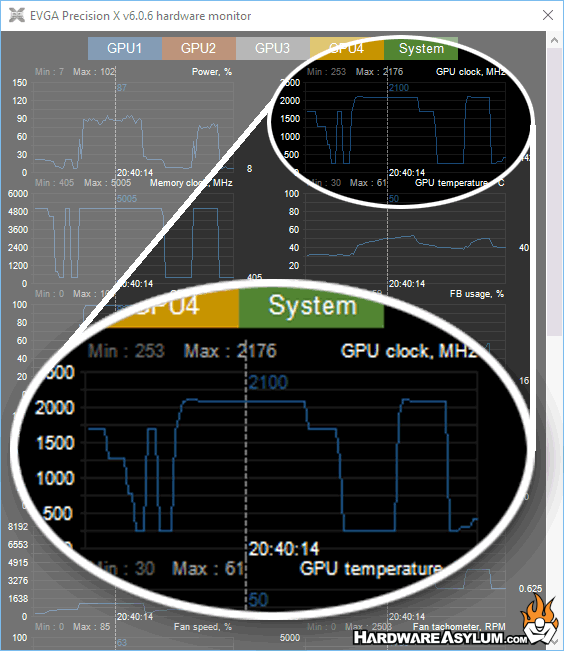




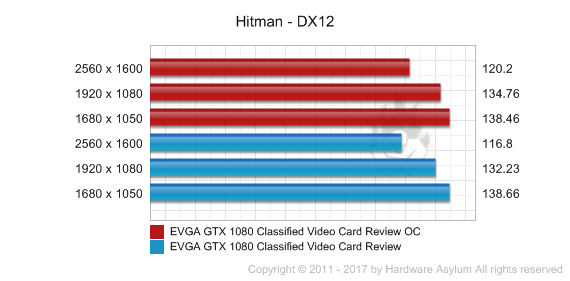
Despite the rather impressive overclock there is very little gain when looking at the gaming benchmark results. This can be attributed to a couple of factors. The first is NVIDIA Boost 3.0 and the fact that this card was boosting up to 1975Mhz on stock clocks helped close the gap. Raising those clocks 110Mhz should have shown a higher gain however, the speed difference wasn’t much compared to the base clock. Also despite my clock settings being configured for 2100Mhz the NVIDIA Boost 3.0 controls everything about the card including how much boost it really wants to run. Under most situations my 2100Mhz ranged from 2113Mhz and 2077Mhz depending on load and benchmark. The only consistent performance gain was a memory overclock which did more to increase performance than anything else.
Keep in mind that overclocking is not guaranteed so your results may vary.

